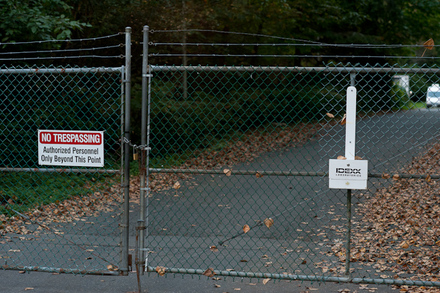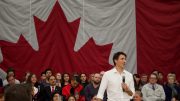In the final days leading up to the confidence motion which brought an end to the 40th Parliament of Canada, the prospect of an election seemed inevitable as the approaching spring thaw. And so it was — after two and a half years of periodic brinksmanship on behalf of all four major parties, they all finally decided, collectively, to refrain from blinking. And so back we Canadians go to the polls, to make our mark on the future of our nation.
Thus far, the promises have been sparse and similar. Stephen Harper’s Conservatives have essentially copy-and-pasted their favourite parts from the now-defunct budget and spent most of their time yelling about the possibility of the opposition forming a coalition government.
Michael Ignatieff’s Liberals have more or less been stuck. Most of their energy has been spent wringing their hands over Harper’s anti-democratic tendencies, an activity which Jack Layton and the NDP have joined in on. Oh, and of course there was the obligatory brouhaha over whether to allow Green Party leader, Elizabeth May, to participate in the TV debates.
So yeah, real inspiring stuff so far. And yet over the last few years it’s been quite clear that there are some enormous gaps between the parties on a number of issues. So why, when it actually matters, are we having trouble seeing that?
The fault for this lies partly with the Conservatives’ proposed budget, which was almost infuriatingly inoffensive — it spent very little and gave small amounts of money to just about everyone. This forced the opposition to call the election on account of a difference of values, as opposed to a tangible major objection on spending.
In a perfect world, there’d be no problem with this. Although no one should doubt Harper’s gifts as a political tactician, he has also proven openly contemptuous of our democratic institutions and customs. There should be little doubt that any of the other candidates would lead governments of considerably different character.
What the opposition are still grappling with, however, is the weird reality that such ideological discrepancies do not necessarily translate into substantively different policies. Take the F-35 issue — the Tories certainly should have held an open competition, and they seem to have been blatantly lying about the cost of the program.
However, at the end of the day, it seems likely that any responsible government would have ultimately come to the same conclusion and bought that jet — it’s a lot of money no matter what, and to settle for anything less than the best would be foolish.
And so go many of the other issues raised against the Harper government — disagreement over the means, as opposed to the ends. For the average Canadian, this just serves to confirm the old maxim that all politicians are really just the same. And who can blame them? While our leaders pontificate about their unique visions of Canada, they simultaneously reach out with promises and policies that aim to do little but the nudge the status quo this way or that.
Ultimately, of course, ideology is important — values can have a huge impact on a country’s path in the long run, so calling an election on such differences isn’t wrong in and of itself. But between now and the end of the month, it seems doubtful that any party will translate those differences into a truly distinct platform, despite having had years to prepare. The best we can probably hope for is that this campaign convinces at least one of the parties that in the next election it would be worth it to take a risk and find a way to not just say they stand for something, but really show it too.
Greg Sacks is a student at Robson Hall at the U of M.




